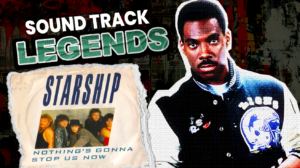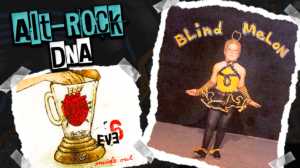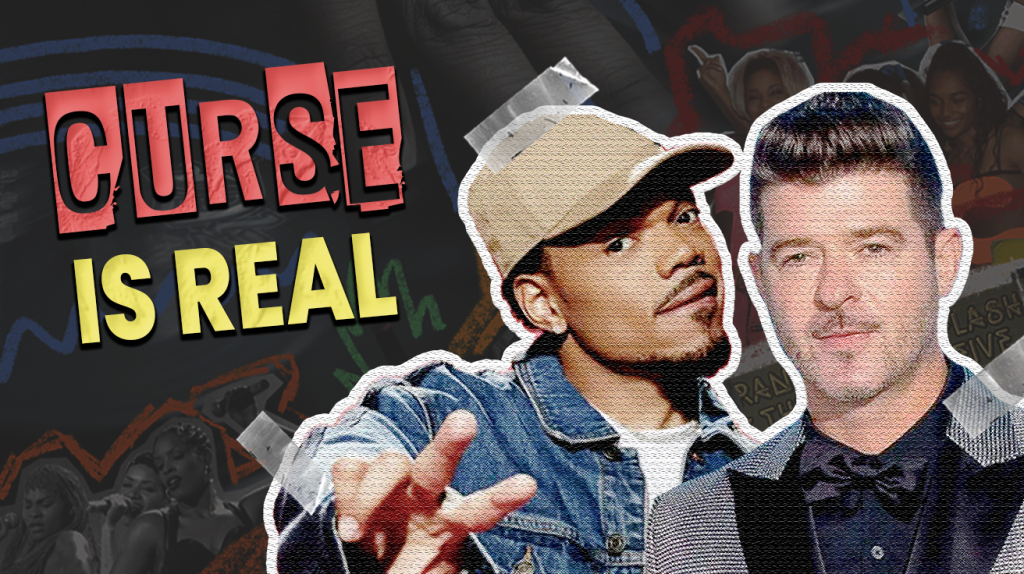
The second album curse is real, but some artists skip straight to career kamikaze. One spectacular flameout can turn chart-toppers into meme fodder faster than anyone can blink. These sonic disasters prove that talent without taste can torpedo even the brightest stars. From hip-hop heroes to pop queens, each entry serves as a masterclass in how not to follow up success. You’re about to witness musical history’s most expensive mistakes—and trust us, the receipts are brutal.
13. Van Halen – Van Halen III

Replacing lightning with fog machine proved disastrous for hard rock legends. Van Halen’s choice of Gary Cherone as their third singer felt like trying to replace a lightning strike with a store-bought sparkler from Dollar Tree. Tasked with filling David Lee Roth’s spandex legacy, Cherone faced songwriting that veered from puzzling to painful, including an awkward piano ballad crooned by Eddie Van Halen himself.
After this experiment, Van Halen didn’t return with a new album for 15 years, leaving many to wonder if the band was officially cursed or just traumatized. The eventual return of David Lee Roth signaled collective relief, proving that some voids can’t be filled with anything less than the original chaos.
12. Jewel – 0304
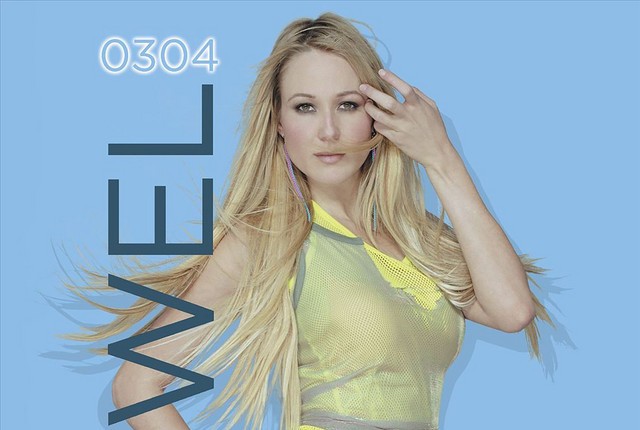
Folk princess traded authenticity for synth-pop disaster. Jewel’s 2003 album 0304 initially topped charts but quickly revealed a sonic shift sharper than any blade. Fans who’d embraced her folksy beginnings felt betrayed as she dove headfirst into pop, ditching acoustic intimacy for synth-heavy beats that sounded more manufactured than a Happy Meal toy.
The single “Intuition” became a pop anthem, but for many, it symbolized the death of authenticity—trading vulnerability for a paycheck. This album didn’t just miss the mark; it shattered the goodwill she’d built with devoted fans who felt like they’d watched their favorite indie coffee shop transform into a Starbucks overnight.
11. Styx – Kilroy Was Here

Rock opera excess turned arena legends into keytar-wielding caricatures. Styx unleashed their overblown rock opera Kilroy Was Here on unsuspecting fans, and the result was less Broadway, more community theater disaster. Movie screens aired campy dystopian films; keytars took center stage; balladry threatened to drown out any remaining rock credibility like a slow leak in a life raft.
“Mr. Roboto” became either a stroke of genius or harbinger of identity crisis, depending on whether you enjoyed watching grown men dress up like robots. Over-reliance on keyboards turned arena rock into a one-person synth show, leaving fans wondering if they’d accidentally stumbled into a Devo concert instead of a Styx show.
10. Roddy Ricch – Live Life Fast

Sophomore slump hit harder than a stock market crash during crypto winter. After his debut Please Excuse Me for Being Antisocial became a critical darling and commercial titan, expectations for Live Life Fast reached astronomical heights. The 2021 follow-up was criticized as mediocre and underwhelming after much hype, leading to sharp drops in sales and public perception faster than a TikTok trend dying.
Sales tanked worse than NFT values in a bear market, and Ricch deactivated his Twitter amid the digital drubbing. The backlash underscores the brutal reality of the music industry: you’re only as good as your last track, and pressure to outdo a smash hit can turn inspiration into desperation.
9. Oasis – Be Here Now

Britpop excess and sibling rivalry created this bloated monument to hubris. Oasis’s Be Here Now hit shelves in 1997 amid the Gallagher brothers’ most explosive feuds. Recording sessions became a sandbox for bad habits and bloated egos that cost a reported $1.4 million. Critics slammed the album as self-indulgent; its 71 minutes of Britpop excess was the sound of a band imploding in real time.
While it initially set sales records, the album quickly faded into obscurity faster than a reality TV star’s fifteen minutes. Years later, [Be Here Now](link to related comeback stories article) collects dust in used bins, a cautionary tale of what happens when rock stars fly too close to the sun while fighting each other.
8. Liz Phair – Liz Phair
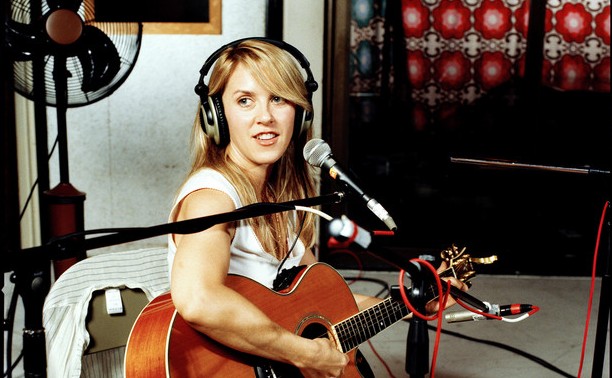
Indie darling’s pop makeover earned the dreaded 0/10 from Pitchfork. After rising to indie fame, Liz Phair reached for pop success, collaborating with the Matrix—the same team behind Avril Lavigne. The backlash was swift and brutal. Pitchfork handed down a 0/10 rating, a score usually reserved for albums that sound like dial-up internet having an existential crisis.
This genre leap was like trading Chuck Taylors for stilettos during a marathon: bold move, but someone’s definitely gonna twist an ankle. The indie queen’s pop makeover sparked a chorus of “sellout” accusations loud enough to drown out the music itself, proving that some artistic pivots hit harder than a plot twist nobody wanted.
7. The Clash – Cut the Crap

Punk legends’ final gasp sounded more like synthesized death rattle. The Clash, once punk icons, crashed hard with Cut the Crap. Bad management steered the ship straight into an iceberg made of terrible decisions and 80s synth trends. Joe Strummer, without Mick Jones and Topper Headon, latched onto electronic sounds like someone desperately trying to stay relevant at a rave.
Clash fans recoiled at the harsh synthesizers and dissonant production, a million miles from their raw roots. It was like seeing your favorite dive bar swap its jukebox for a TikTok feed. This desperate experiment ended the band permanently, proving that some creative directions are actually dead ends.
6. Public Enemy – Muse Sick-n-Hour Mess Age
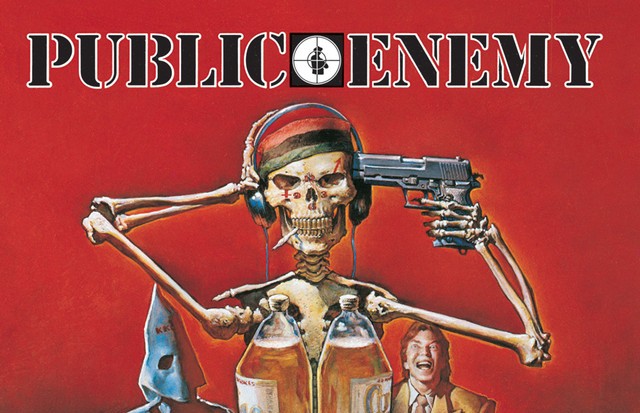
Conscious rap legends alienated their own fanbase with this tonal disaster. Public Enemy’s fifth album dropped like a stink bomb at a house party, alienating fans with its abrupt stylistic shift. Rolling Stone and The Source delivered critiques savage enough to make seasoned A&R executives wince and reach for their therapy apps.
Sales figures nosedived faster than credibility at a press conference. Fans accused PE of being out of touch, mistaking Chuck D’s revolutionary fire for lectures they didn’t sign up for. The group that once preached revolution now attacked gangsta rap—like railing against the very monster they helped create.
5. Madonna – American Life

Pop royalty tried political awakening and landed face-first in irrelevance. American Life dropped in 2003 feeling like when your rich aunt suddenly gets woke at Thanksgiving dinner. The album featured Madonna rapping—yes, rapping—and sounding about as in touch as a rotary phone trying to send a TikTok. The jarring stylistic shift was supposed to be edgy; instead, it was like showing up to a black-tie event in Crocs.
Sales revealed a decline steeper than her cone bra career arc. The album didn’t kill her career, but it served as a painful detour that had fans wondering if the Queen of Pop had lost her crown in a yoga studio somewhere, chanting mantras instead of making hits.
4. YBN Nahmir – Visionland

From viral promise to meme punchline in one disastrous debut. After early success with viral singles and mixtapes, Nahmir’s highly anticipated debut album Visionland collapsed under negative fan response and poor sales, moving only 4,000 first-week units. “Soul Train” in particular made him the subject of memes, bringing widespread ridicule and marking a steep career downturn that hit different than regular flops.
His once-promising trajectory took a U-turn into the meme abyss, leaving him struggling to break free from viral shade and label limbo. When your best track becomes the soundtrack to roast videos on every platform, it’s time to question whether your artistic vision needs new prescription lenses.
3. Robin Thicke – Paula

Grand romantic gesture meets public humiliation in this confessional trainwreck. Robin Thicke’s Paula, released in 2014, was his Hail Mary pass to win back ex-wife Paula Patton. Instead, it landed like a wet firecracker at a Fourth of July party that everyone wished they hadn’t attended. The sonic apology wrapped in excruciatingly raw emotion was universally panned by critics and fans alike.
Paula sold a mere 24,000 copies in its first week stateside. In Canada, it moved only 550 copies, proving some wounds are too deep for a ballad to heal. Thicke later expressed regret over airing his dirty laundry in public, but the damage was done—effectively ending his mainstream visibility for years.
2. Lauryn Hill – MTV Unplugged No. 2.0

Raw vulnerability became public breakdown in this acoustic disaster. Hill’s MTV Unplugged No. 2.0 felt like watching a once-unstoppable force grapple with demons in real-time through a livestream nobody asked for. Forget the polished vocals and intricate arrangements of [The Miseducation](link to greatest sophomore albums article); this was raw, unfinished material delivered with a voice that sounded, charitably, shot.
Hill sat alone with an acoustic guitar, seemingly daring the audience to keep watching. The performance felt like artistic self-sabotage rather than creative expression. For an artist of her caliber, it was a brutal spectacle that effectively derailed her mainstream career while leaving fans feeling like unwilling witnesses to a breakdown.
1. Chance the Rapper – The Big Day

Marriage bliss became meme nightmare when Chance traded Grammy magic for viral ridicule. After Coloring Book won a Grammy and became a streaming milestone, Chance dropped The Big Day in 2019, and the internet responded like it had been personally wronged. The album spawned viral paraphrases like “I love my wife” that turned into punchlines sharper than any diss track ever written.
The fallout wasn’t just online ridicule—it tanked ticket sales, leading to a canceled tour. Even his manager jumped ship with a lawsuit, claiming Chance ignored advice and rushed the project. In the digital age, that’s how fast a career can flip from beloved to block button, proving that sometimes love songs hit different when they’re the only songs.




